Author: Baby Morgan
-
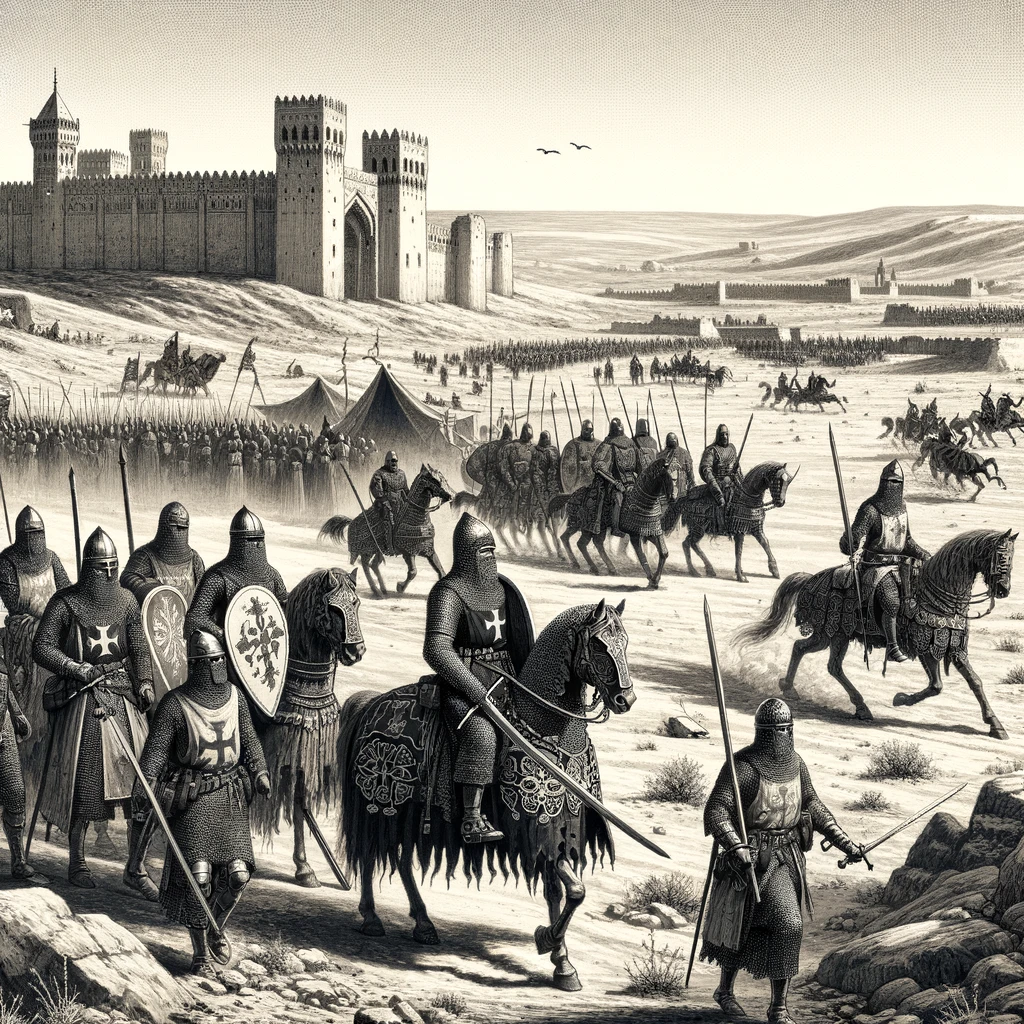
The Crusades: A Complex Tapestry of Medieval Faith and Conflict
The Crusades were a series of religious wars initiated, supported, and sometimes directed by the Latin Church in the medieval period. The most commonly known Crusades are the campaigns in the Eastern Mediterranean aimed at recovering the Holy Land from Muslim rule, but the term Crusades is also applied to other church-sanctioned campaigns. These were…
-
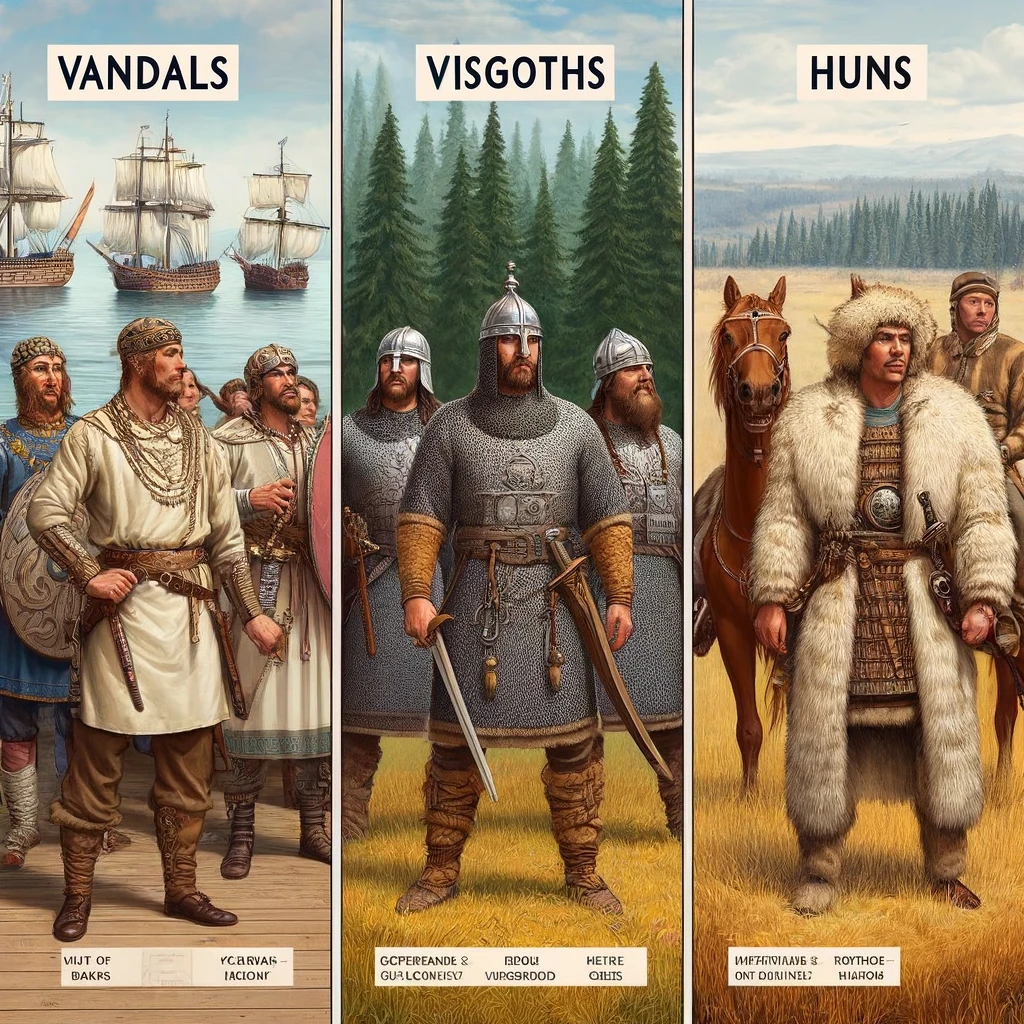
The Fall of Rome: Exploring the Roles of Vandals, Visigoths, and Huns
The Vandals, Visigoths, and Huns were three of the most formidable groups that played pivotal roles in the twilight years of the Roman Empire. Each of these groups, distinct in their origins and trajectories, left indelible marks on the history of Europe, contributing to the eventual fall of Rome and the shaping of the medieval…
-

Empowered by History: How Remembering the Past Enhances Independence and Decision-Making
The maxim those who remember the past can do without invites us to reflect on the profound advantages and self-sufficiency gained through an understanding of history. This perspective suggests that a deep engagement with the past not only helps to prevent the repetition of mistakes but also enriches our ability to navigate the present without…
-

The Crucial Role of Historical Memory in Shaping Our Future
The adage “those who forget the past are doomed to repeat it” serves as a solemn reminder of the importance of historical memory in shaping our future. This idea, often attributed to the philosopher George Santayana, suggests that history’s most valuable lesson is its ability to inform and guide the present and future actions of…
-

The Aftermath of the Vandal Sack: Rome’s Decline and the Shift in Mediterranean Power
In 455 AD, Rome, the beacon of civilization, experienced one of its darkest days under the ruthless incursion of the Vandals. Led by their king, Genseric, the Vandals, a Germanic tribe originally from the regions that are now Sweden and Poland, had previously settled in North Africa. From there, they launched an invasion that would…
-
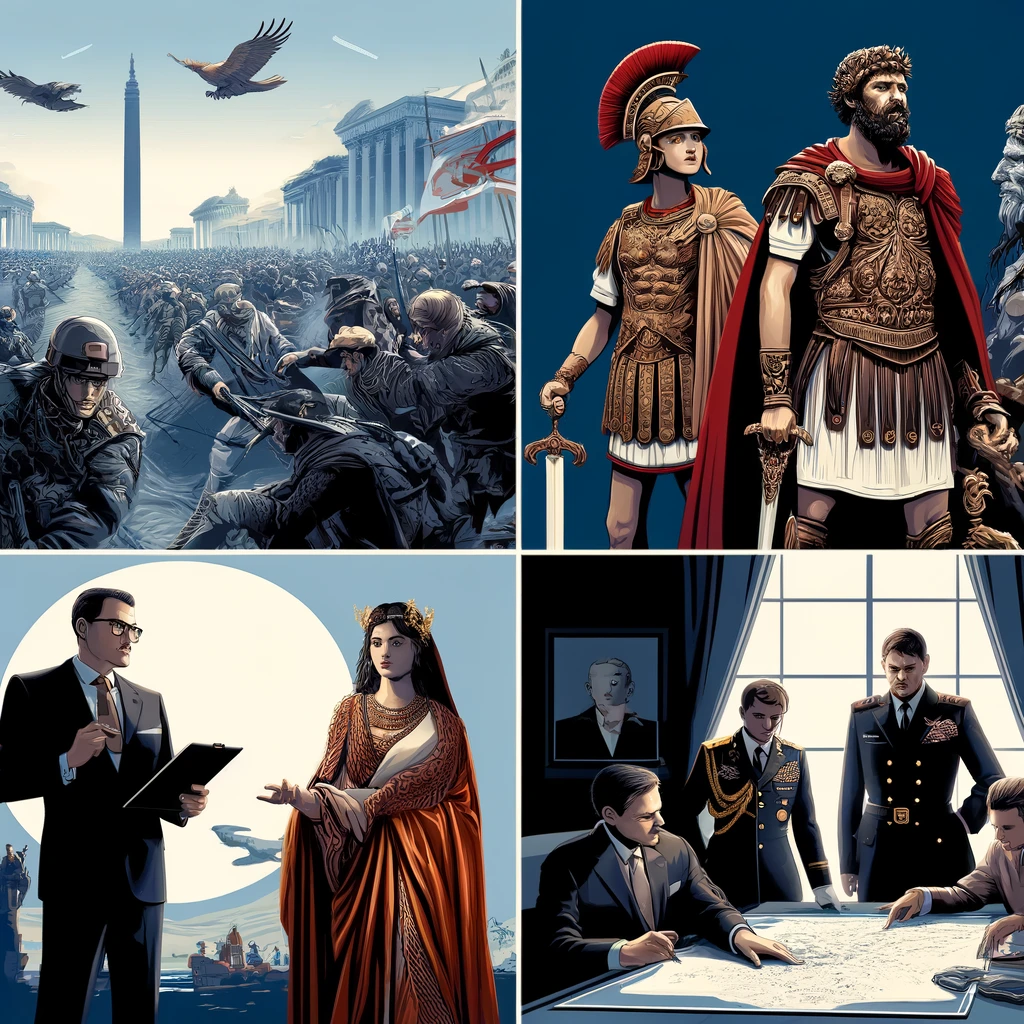
235-284 AD: Crisis of the Third Century, marked by political instability, economic decline, and external invasions.
Amidst the swirling mists of time, tales darkly twirled, Third Century’s Crisis, chaos unfurled, Empires shaken, a turbulent world. From Rome’s heart, the strain was clear, Barbarians at the gates, the empire in fear. Emperors rose and fell like fleeting dreams, Each reign short, torn at the seams. Gallienus fought with valor, amidst despair, The…
-
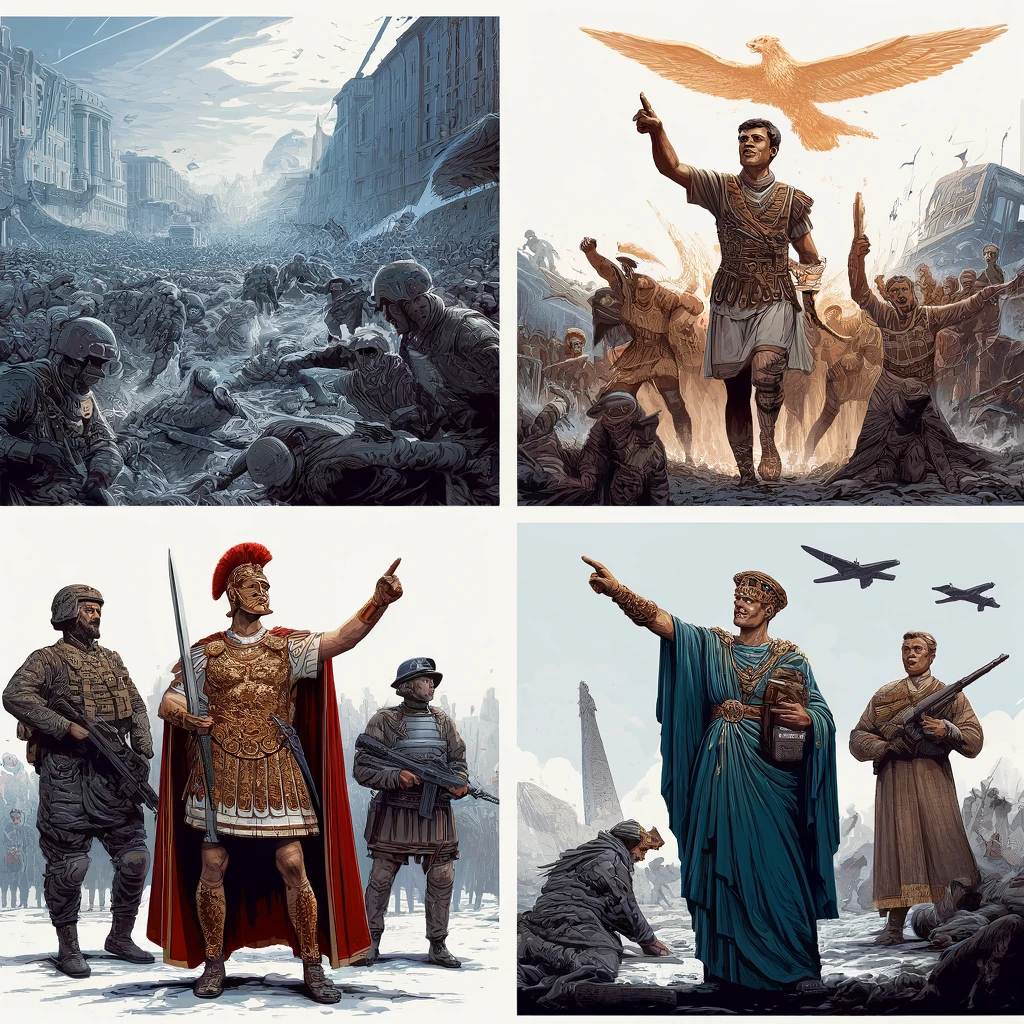
The timeline for the fall of the Roman Empire is complex, marked by several key events over centuries. Here’s a concise overview:
In the annals of time, the great Rome’s tale, A city of might, destined to fail. Third Century’s Crisis, chaos unfurled, Empires shaken, a turbulent world. Constantine’s vision in three-twelve, clear, A cross in the sky, the Christian sphere. Four-ten, the Goths at the gates, they stood, Alaric’s forces, fire and blood. Four-five-five, Vandals took…
-
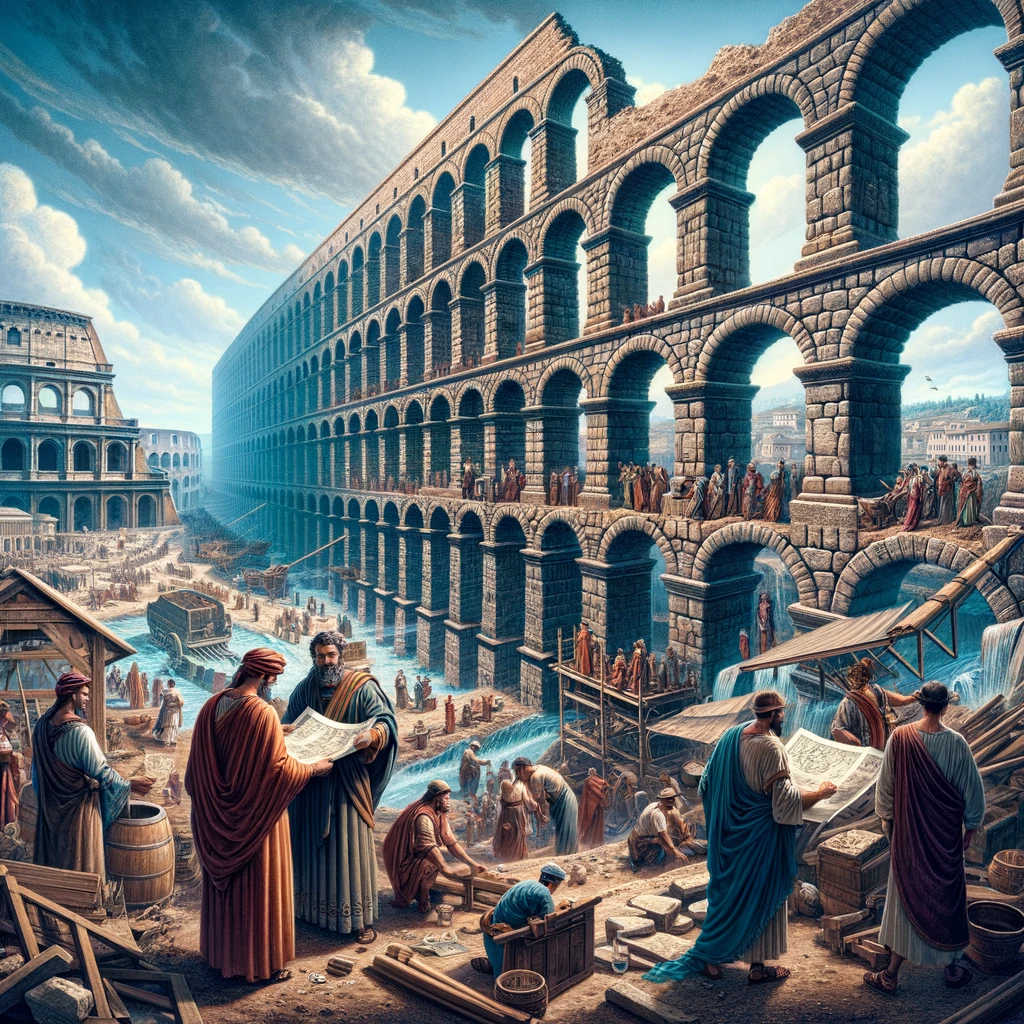
Enduring Foundations: The Gradual Construction of Rome and Its Lasting Legacy
The proverb “Rome wasn’t built in a day” epitomizes the concept of patience and the cumulative nature of great achievements. This saying, while commonly cited in contemporary times to underscore the importance of perseverance and gradual progress, also invites a closer look at the actual construction of Rome and the metaphorical layers that its development…
-
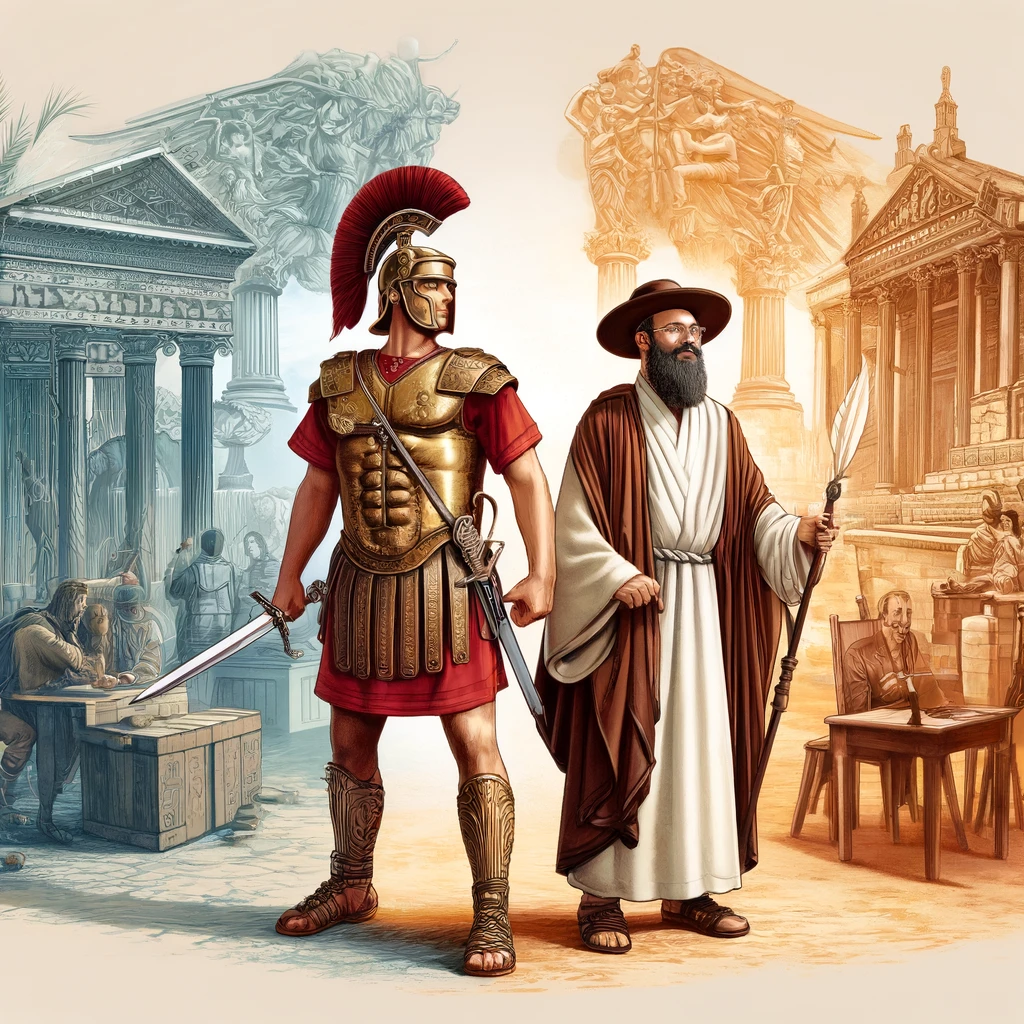
The Forgotten Holocaust: The Jewish-Roman Wars and Their Impact on Judea
The term “Holocaust” is most commonly associated with the genocide of six million Jews during World War II under Nazi Germany. However, the concept of a holocaust extends beyond this modern historical event and can be applied to other periods of severe persecution and destruction of Jewish communities. One such period occurred during Roman times,…
-
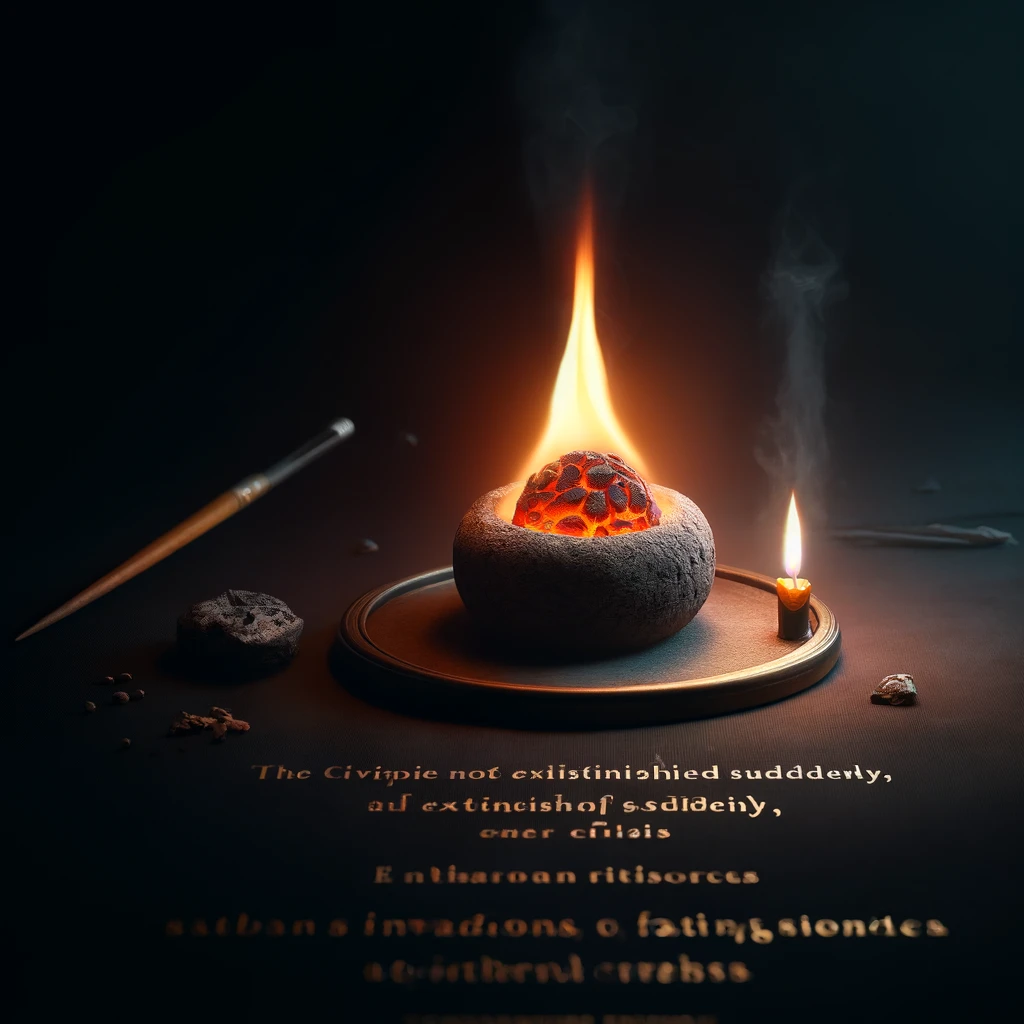
The Slow Burn: Understanding the Gradual Decline of the Roman Empire
The saying “Rome wasn’t built in a day” is commonly used to remind us that significant achievements require time and effort. The phrase also has a lesser-known counterpart, less cited but equally profound in its implications: “Rome wasn’t burnt in a day.” This reflection on the gradual decline and eventual fall of one of history’s…